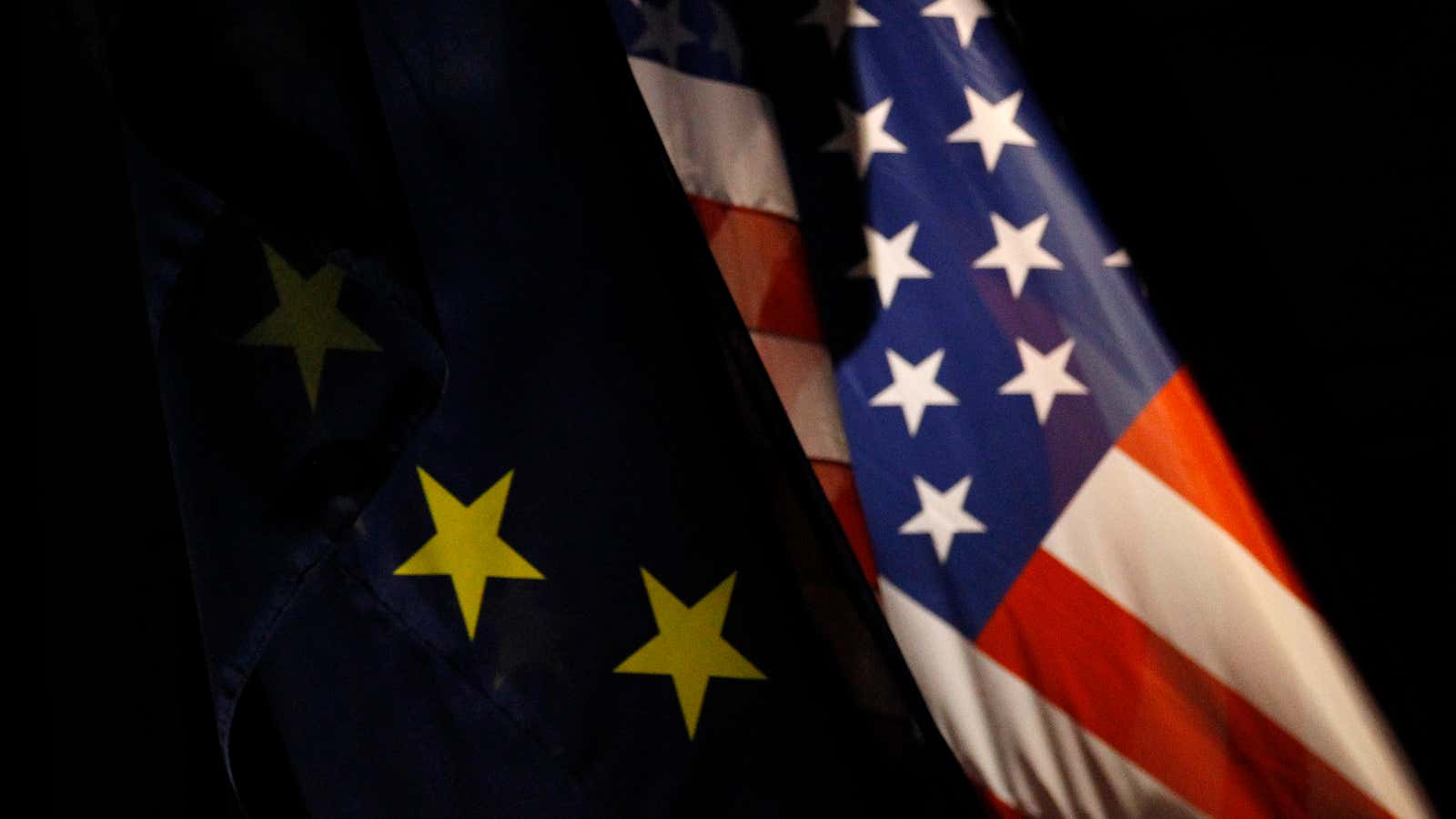Google was hit by a record-breaking fine for antitrust violations in Europe today. The European Commission will levy a €2.42 billion ($2.7 billion) penalty on the tech giant, far surpassing the €1.06 billion fine slapped on Intel in 2009, the previous record. Under EU law, a maximum fine of 10% of annual revenues can be levied for antitrust misdeeds; that would have translated to $9 billion, based on Google parent company Alphabet’s 2016 revenues, so it could have been even worse.
Even before the massive fine was announced, the jockeying over how to frame the punishment was underway. A draft letter is being circulated in Washington, DC, that claims the EU is “unfairly targeting” American companies, according to the Financial Times (paywall). Although the letter is in the Consumer Technology Association’s name, a senior Google lobbyist had been reportedly promoting it to lawmakers. The tech firm later distanced itself from the letter, the FT reported. No other companies have signed the letter yet, the FT says.
Google said it “respectfully disagrees” with the commission’s conclusions announced today. It said it would review the decision and consider an appeal. “We look forward to continuing to make our case,” a Google spokesperson said in a statement. General counsel Kent Walker also wrote a blog post in response to decision.
Opposing Google’s effort is a group of American companies, including tech heavyweight Oracle, who have published their own letter, welcoming the commission’s action and dispelling the anti-American argument, Recode reported. The fine is “necessary and appropriate, not provincial,” the letter reads. “We have watched Google undermine competition in the United States and abroad,” it continues. The signatories include News Corp. and Yelp, in addition to Oracle, all of whom have lodged complaints against Google with the commission in the past.
The long-running Google case, which began in 2010, centers on allegedly anti-competitive practices by the search giant around its shopping service. The commission says Google unfairly favors its own shopping search results; Google denies any wrongdoing. According to Margrethe Vestager, the European Commissioner for Competition:
“What Google has done is illegal under EU antitrust rules. It denied other companies the chance to compete on the merits and to innovate. And most importantly, it denied European consumers a genuine choice of services and the full benefits of innovation.”
The shopping case is just one of three outstanding antitrust investigations against Google in Europe. The other two focus on how Google distributes its Android mobile operating system and the terms it offers to websites displaying its ads. Those cases could also have blockbuster fines attached to them when they finally conclude.
Update: This article has been updated with Google’s comments.
